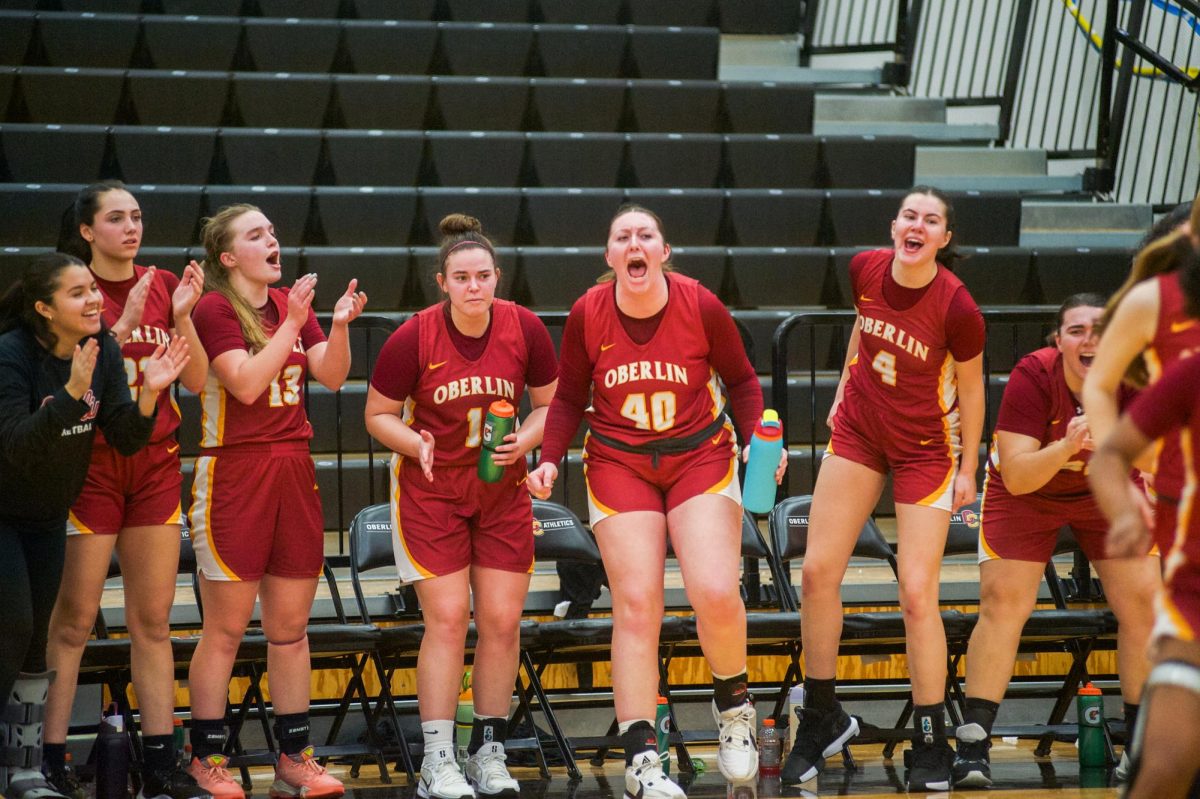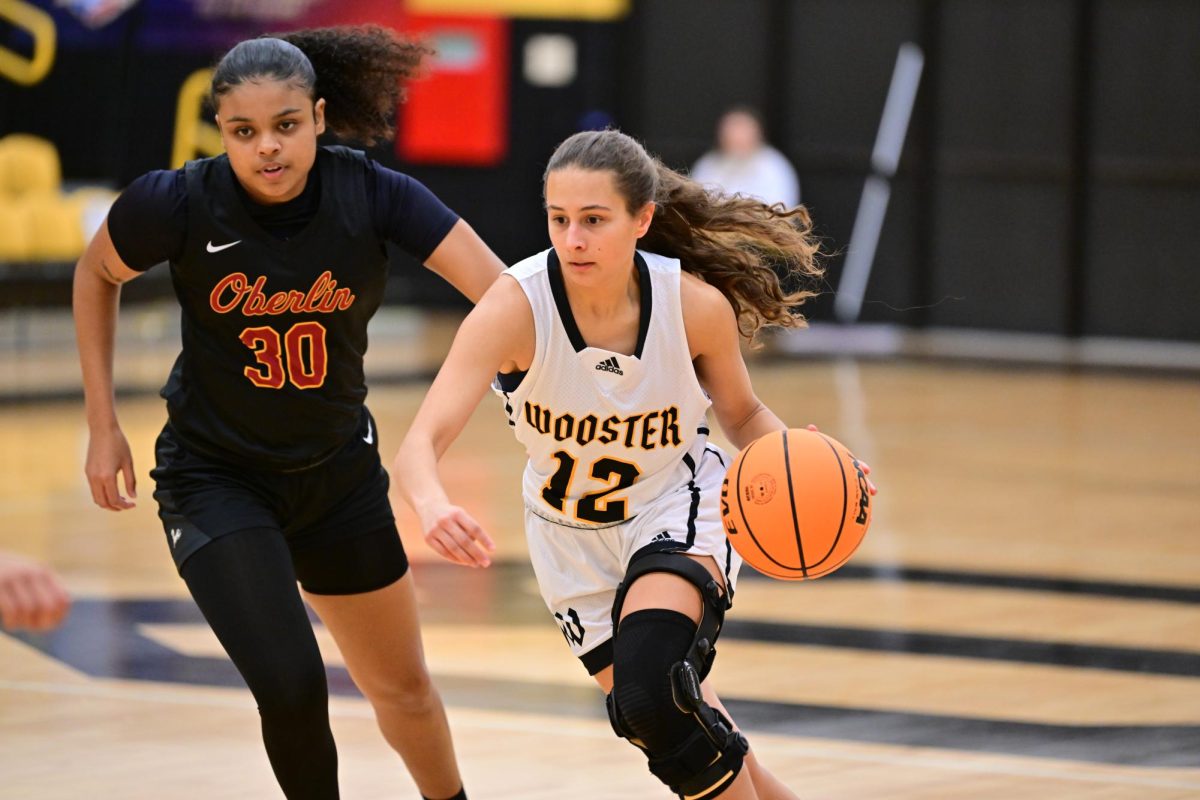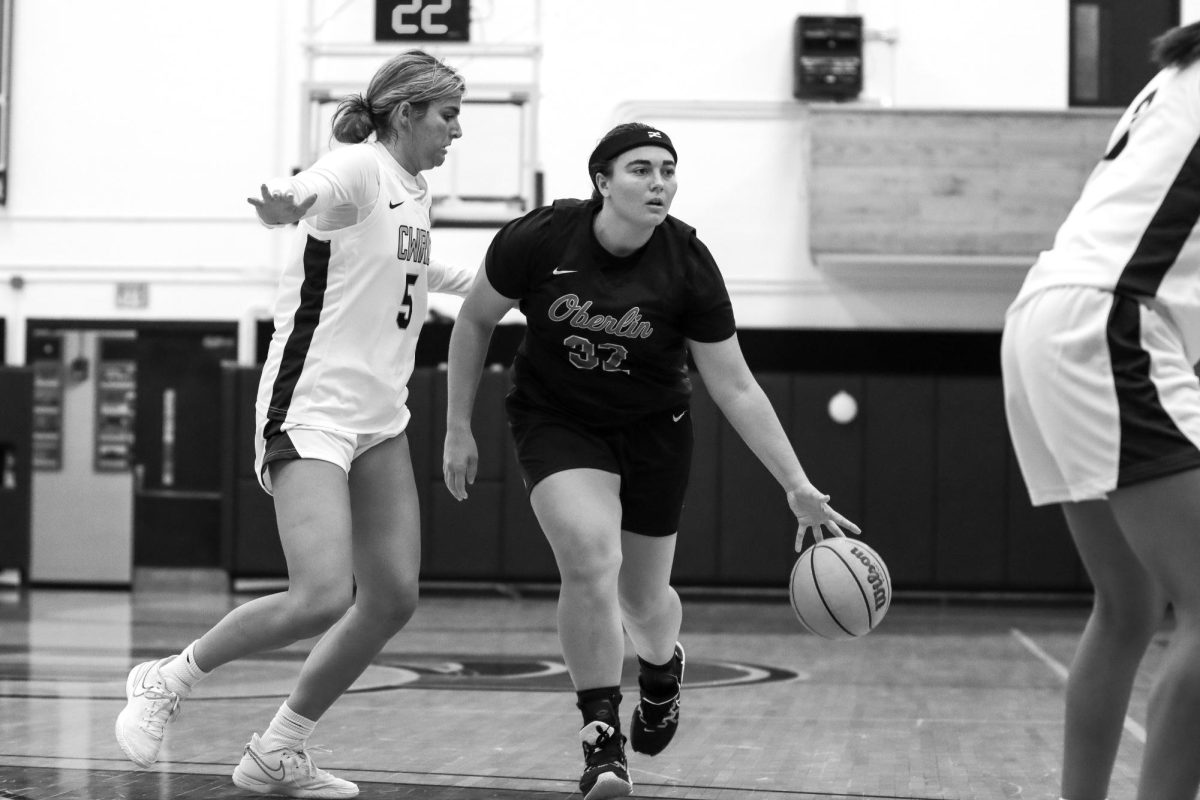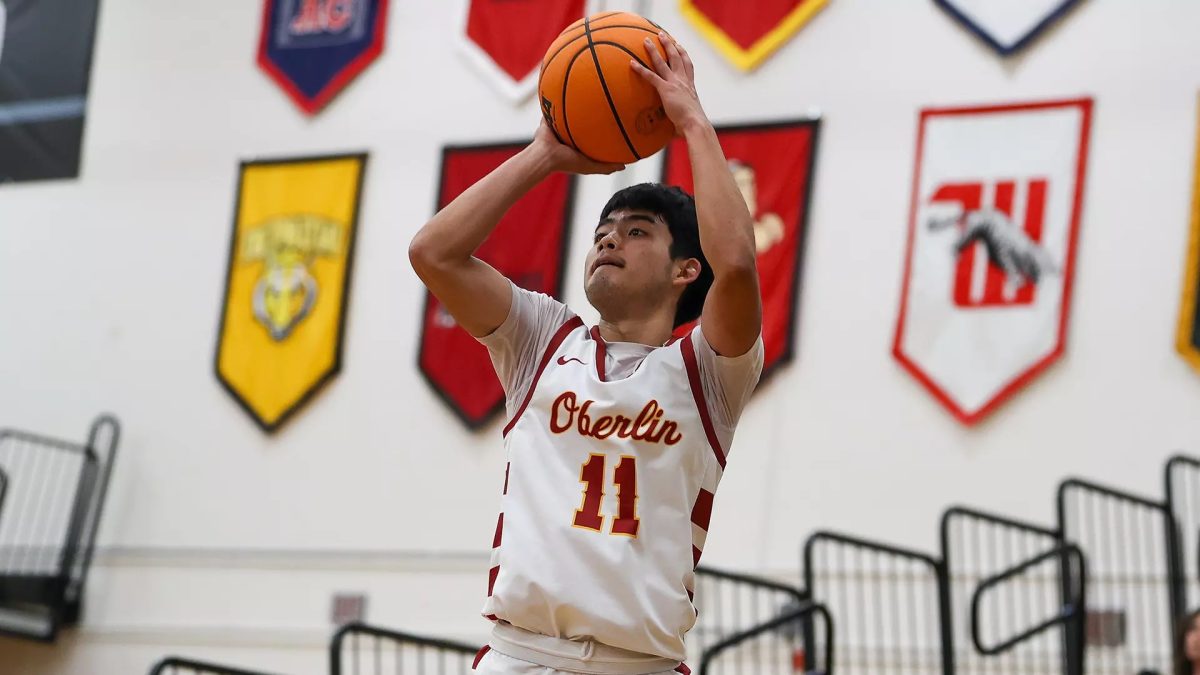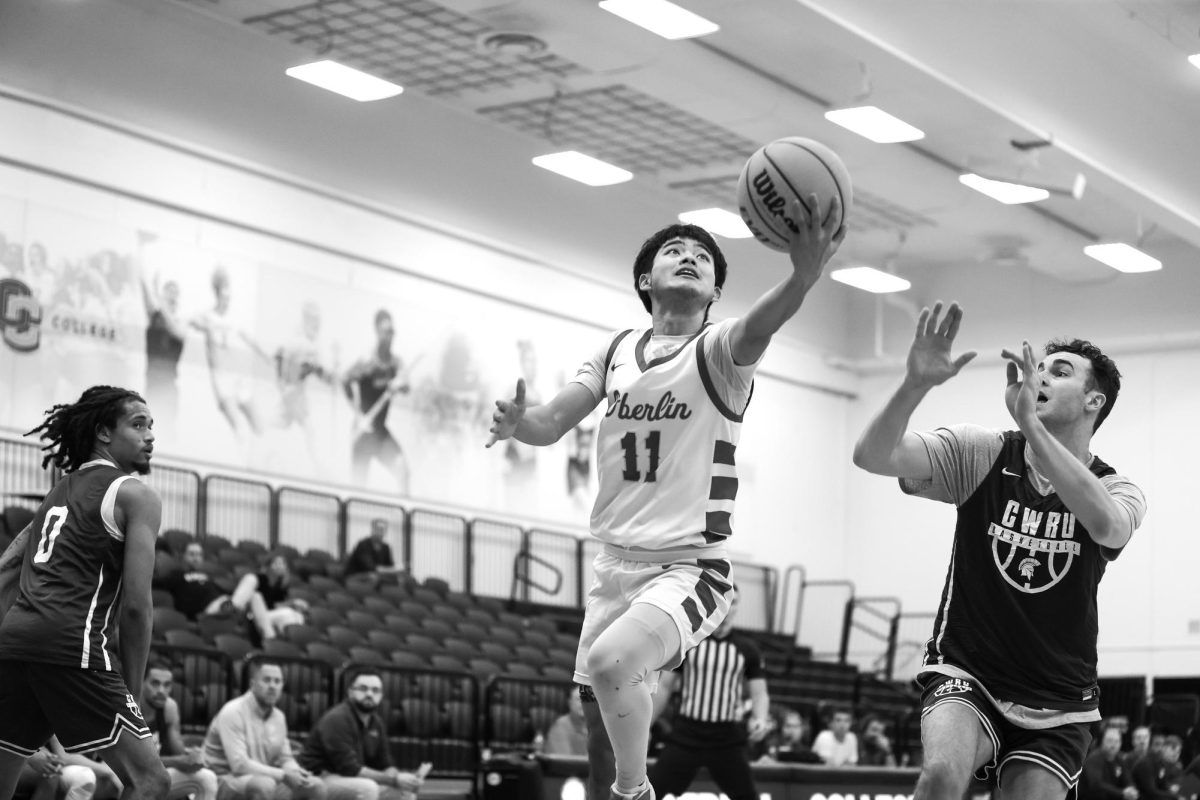On Sunday, the undefeated South Carolina Gamecocks beat the Iowa Hawkeyes 87–75, in a rematch from the 2023 Final Four. The tournament took place at Rocket Mortgage FieldHouse, and was the first time since 2007 that the Final Four was hosted in Cleveland.
With the top offensive teams competing against each other, both averaging over 80 points per game, the game started fast and intense. Iowa exploded on a 10 point run in less than 3 minutes, with Caitlin Clark scoring 18 points out of Iowa’s 27 points, breaking a tournament record for most points scored in a single quarter. It would not be until 6:02 through the second quarter in which South Carolina would tie, thanks in part to freshman Tessa Johnson hitting a critical three pointer, assisted by Kamilla Cardoso.
These two players alone highlighted South Carolina’s strengths throughout the entire season that would help them win the game: rebounding, depth, and three-point shooting. Throughout the game, the Gamecocks outrebounded the Hawkeyes 51–29, creating the opportunity for multiple second chance points and possession of the ball. Cardoso, who would win Most Outstanding Player, contributed 15 points and 17 rebounds alone.
While a total of four scorers recorded double-digit points, the Hawkeyes were largely dependent on Clark, who scored 30 points, 8 rebounds, and 5 assists. Even with the amount of points, she was significantly affected by Raven Johnson’s defense. When guarding Clark, she only allowed 7 points and forced 4 turnovers from Clark. Additionally, South Carolina’s bench in total outscored Iowa’s bench 37–0. Tessa Johnson, a bench player, would end the game with 19 points, a career-high, making 63.6 percent of her shots attempted from the field and 50 percent from the three point line. Other key bench players included MiLaysia Fulwiley, who was able to provide some fast break points, and Sania Feagin, who subbed in for Cardoso. Beyond the arc, Johnson was aided by Oregon transfer Te-Hina Paopao, who led all Division I players in three point shooting percentage at 46.8 percent and scored 3 out of her 4 three point attempts. In total, South Carolina in total shot 42.1 percent, compared to 39.1 percent from Iowa.
After a 49–46 finish at the half, South Carolina started a 6–0 run into the third quarter and never looked back, expanding their lead to up to 14 points. Even two three pointers from Clark and Gabbie Marshall in the fourth quarter to cut the lead down to six points wouldn’t be enough, as the Gamecocks would hold Iowa completely scoreless for the last four minutes of the game. In the last 20 seconds, the predominately Iowa crowd rose to its feet to watch Clark leave her final college game, as South Carolina won their third national championship.
Clark spoke about the resilience her team had to keep on pace with South Carolina, a team that wins by an average of 28.9 points per game, and the limits that 6’2 Hannah Stuelke had against the 6’7 Cardoso when it came to rebounding.
“We just weren’t able to come up with a few stops and a few baskets,” Clark said. “That speaks to our team. That’s the story it’s been all year long. My whole entire career, we never give up. We just keep fighting. Their runs are kind of daggers, especially when they keep making pull-up jump shots. That’s what we are going to give up. Sometimes you live with that and you’re going to live with them out-rebounding you. There’s only so much you can do for someone who’s 6’7.”
Iowa’s final four journey included a path through Albany 2, known as the most difficult region in the tournament because of 2 seed UCLA and 3 seed LSU. After struggling through West Virginia’s defense, the Hawkeyes defeated reigning champions LSU in the Elite Eight and narrowly advanced over 3 seed UConn 71–69, which was marred by a controversy over an offensive foul call committed by Aaliyah Edwards 3.8 seconds before the game ended.
Clark’s final collegiate games were highlighted by sold-out crowds and viewership records broken in all three games against LSU (12.3 million), UConn (14.2 million), and South Carolina (18.9 million). The final championship game was more watched then the men’s, which had a total of 14.8 million viewers. She ends her tournament run with a slew of records, including most three pointers made in a season, most points in a tournament, and most points per game in a career.
South Carolina’s win was the final stop of the “Revenge Tour”, a term coined by Raven Johnson after their loss in the Final Four last year. Johnson particularly was fueled after a video of Clark waving her off and refusing to guard her went viral. As they cruised through the tournament, even with narrow victories over Indiana and Oregon State, Johnson continued to look ahead for the possibility of facing Iowa.
“I did want to see them in the national championship this year because what happened last year,” Johnson said. “It was apology to my teammates, my coaches and myself… And there’s no better way than to play them in the championship and beat them.”
South Carolina is now the 10th undefeated national championship team in the country since UConn’s 2015–16 season, and is the first undefeated season in program history. Dawn Staley is the first Black head coach in Division I basketball, men’s or women’s, to have three national championship wins, and the first to have an undefeated championship season. After the departure of five starters and all of the “Freshies”, a highly touted recruiting class that aided the Gamecocks to a 2022 championship, Staley was responsible for reorganizing and rebuilding around the younger team, whom she has affectionately referred to as the “daycare”. All players had little to no career starts before the season. As a result, the Gamecocks were ranked at number 6 in the preseason poll, but have remained in the number 1 spot for all 21 weeks, even with the third hardest schedule out of Division I programs.
Staley reflected on her historical season by talking about the culture she promoted at South Carolina and its effectiveness, even if the Gamecocks were overlooked by many throughout the season.
“I’m forever indebted to basketball, so I’m always going to take care of it. I’m always going to make sure that our players are respectful. I’m always going to make sure that they know the history of our game. I want to make sure they are always respectful to our opponents…I don’t think that’s talked about enough, what we’ve been able to do, and I don’t know why. And I really don’t care why. We’re going to keep doing what we’re doing the right way, whether we are the popular or unpopular successful programs in the country.”


